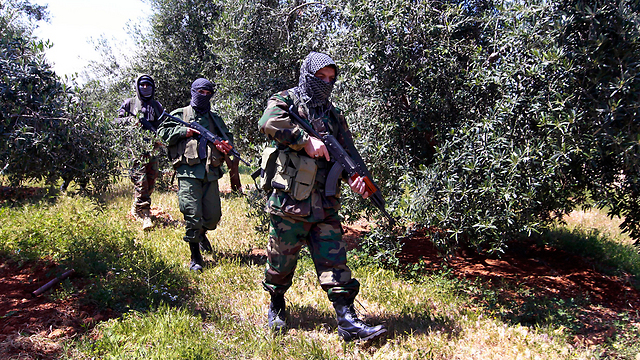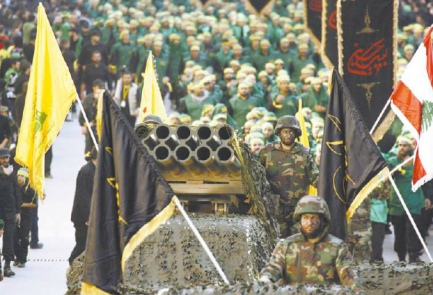While the al-Qaeda-affiliated Jabhat al-Nusra organization is taking over almost all the territory facing our Golan Heights, and the Islamic State is breaking into Lebanese territory from the north – and after it declared last week that it was “launching the war to liberate the Lebanon region and add it to the Islamic State” – the last thing Hezbollah needs right now is a conflict with Israel.
Its two existential enemies, Sunni organizations al-Qaeda and Islamic State, are outflanking it from the east and from the south, and it is deeply engaged in that area. The definers of the Middle East have changed, and they are no longer Arabs against Israel, but Sunnis against Shiites.
That’s why Hezbollah was so shocked when its senior members were killed on January 18 in Mazraat al-Amal, in the area of Syrian President Bashar Assad’s 90th Brigade. That area is the last one which has remained in the hands of the Syrian regime, and that is where Hezbollah has set up its headquarters and gathered its fighters.
What are they doing there? They have decided to defend that area at all costs, because if Jabhat al-Nusra crosses it, it will be able to continue northward to the Shiite and Hezbollah strongholds in Lebanon’s Beqaa Valley, turn westward to the Shiite areas of southern Lebanon, or turn eastward towards Damascus.

Hezbollah fighters in Syria. Why are we disturbing them? (Photo: AP)
We were stressed out by the fact that hundreds of Hezbollah fighters were gathering next to our border in the Golan, a place they haven’t been present in before, but neither have Jabhat al-Nusra fighters. Hezbollah thought that we understood its existential distress, and the fact that it basically gave us years of calm, and that created the misunderstanding. Mazraat al-Amal is located opposite our Hermon post, and Hezbollah wasn’t even trying to conceal its actions.
In other words, the war of the ethnic groups is more important, as far as these terror organizations are concerned, than Israel. And as far as both the Sunnis and the Shiites are concerned, we are the less threatening enemy.
So why did Hezbollah retaliate on Mount Dov last week? Because it became a subject of ridicule in the Arab world in the past week for threatening but not responding. If Hezbollah hadn’t retaliated in some way, it would have served as proof that the organization has sunk so deep into the Syrian mud that it has abandoned the Israeli issue.
In light of the fast-changing situation on the borders, we should have a channel of dialogue with Hezbollah in order to convey calming messages – including quiet non-aggression agreements. That doesn’t turn us into Hezbollah supporters, of course, just like we are not supporters of al-Qaeda and Jabhat al-Nusra. Hezbollah already suspects that we have a quiet non-aggression agreement with the latter.
We must make it clear to all sides that we have no interest in the world wars between them – after all, we are neither Sunnis nor Shiites – and that if they want to kill one another, it is none of Israel’s business and it will not intervene in favor of any of them
Therefore, Israel should not intervene in regards to Hezbollah’s fighting zone in the 90th Brigade area either. That’s the Sunnis and Shiites’ fate, as long as none of them dares violate our sovereignty.
So why are we disturbing them? As Napoleon used to say, never interfere with an enemy when he’s in the process of destroying himself.
http://www.ynetnews.com/articles/0,7340,L-4621536,00.html









